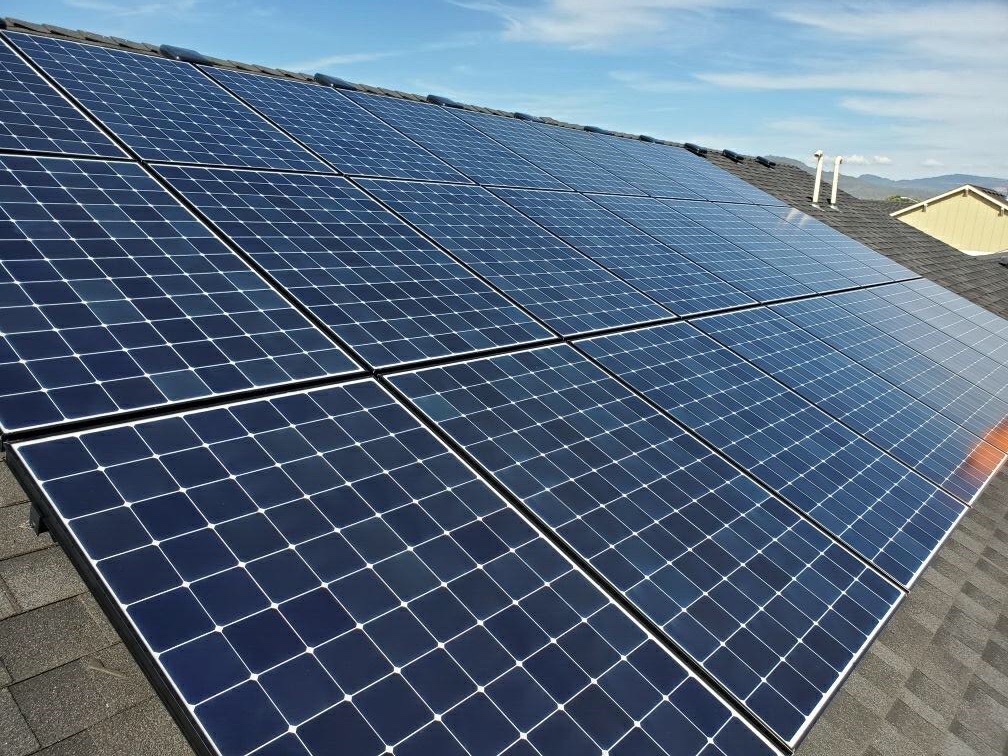What happens to solar equipment when the system is no longer in use or at the end of its life? Unfortunately, many panels have ended up in landfills. In 2015, California passed a law that does not allow PV panels to be dumped into landfills. Because of that, panels were being shipped to other states and being disposed of there.
Today, more companies are coming to the rescue, offering recycling and/or reuse of solar equipment. The systems True South Solar is installed today will be at prime production for at least the next 25 years. With solar gaining in huge popularity over the last 5-10 years, what will become of these panels in the future?
Right now, there are no recycling facilities in Southern Oregon for solar equipment, but there are two in the Portland area. Green Century Recycling and Far West Metals.
Another solution to this problem is reuse. Common Energy LLC in Hood River, Oregon can reuse panels that are still functioning. WFTSS in Fresno, California has kept more than 1,000 tons of solar material out of landfills by reusing the equipment. The company sells the reused equipment pieces which funds their main objective- to install pro-bono solar projects to indigenous people in Mexico.
Other out-of-state companies making an impact include RecyclePV in Arizona, which opened in 2018. To recycle a panel, they separate the aluminum frame, remove the junction box and wires and then run the panel through an oven. That is followed by separating the crushed materials. This process results in a 98% recycled panel!
Many of the panels we install today have a warranty of at least 25 years. Even after that, the panels will continue to work, just at a lesser efficiency. When it does end up being time to recycle them, we are hopeful that there will be many ways to recycle and reuse those parts, even locally.
What about batteries? We carry both the SunPower SunVault and Tesla Powerwall batteries here at True South. Here is what each company has to say about their products:
SunPower SunVault
SunPower has established environmentally responsible disposal of waste as a core objective of our business. To this end, we maintain a national network of innovative, approved recyclers for our electrical, mechanical and solar panel waste streams. We test, reuse, or resell components that have remaining life, and ship unusable inventory to Responsible Recycling (R2:2013)—specialized recyclers with robust downstream partners for the circular use of extracted raw materials and precious metal recovery (e.g. glass, aluminum, etc.). For new products such as SunVaultTM Storage, we are developing end-of-life partnerships for responsible battery handling, disposal and recycling. Additionally, we have taken steps to minimize the freight mileage for our waste streams by using direct shipments to lower the carbon footprint of reverse logistics.
What happens to Tesla battery packs once they reach their end of life?
Unlike fossil fuels, which release harmful emissions into the atmosphere that are not recovered for reuse, materials in a Tesla lithium-ion battery are recoverable and recyclable. Battery materials are refined and put into a cell, and will still remain in the cell at the end of their life, when they can be recycled to recover its valuable materials for reuse over and over again.
Extending the life of a battery pack is a superior option to recycling for both environmental and business reasons. For those reasons, before decommissioning a consumer battery pack and sending it for recycling, Tesla does everything it can to extend the useful life of each battery pack. Any battery that is no longer meeting a customer’s needs can be serviced by Tesla at one of our service centers around the world. None of our scrapped lithium-ion batteries go to landfilling, and 100% are recycled.

